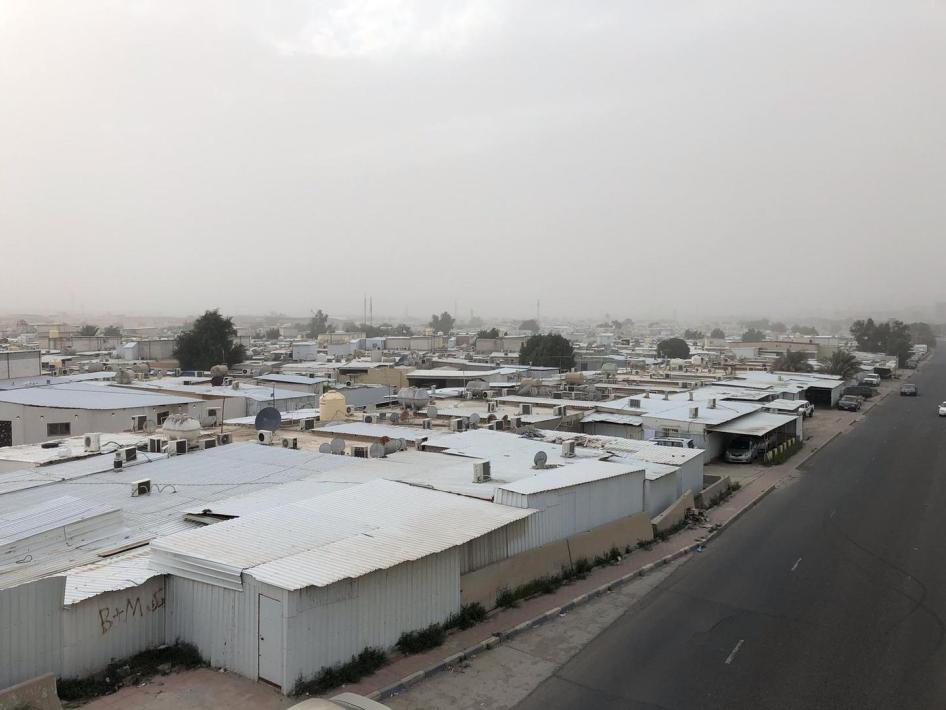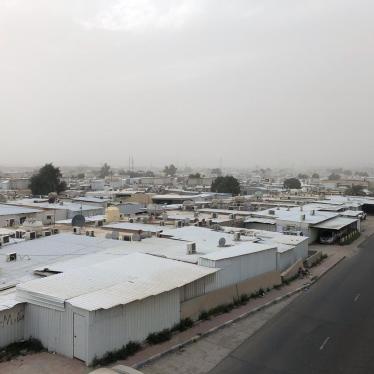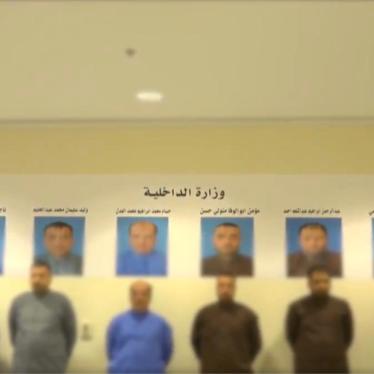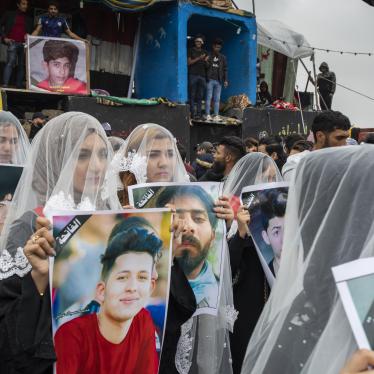(Beirut) – More than a dozen Bidun activists detained in Kuwait since July 2019 began a hunger strike on August 22 to protest human rights violations against themselves and the Bidun community, Human Rights Watch said today. Kuwaiti authorities should ensure that all detainees have adequate access to medical treatment.
“Kuwait’s authorities should unconditionally release all Bidun activists who are being held without a recognizable charge under international law,” said Michael Page, deputy Middle East director at Human Rights Watch. “The continued detention of Bidun activists for their peaceful protests reveals the government’s intent to address this longstanding issue through abuse and coercion rather than respecting basic rights.”
Kuwait’s State Security agency began arresting activists from the stateless Bidun community on July 11 after they organized a peaceful sit-in at al-Hurriya Square in the town of al-Jahra, near Kuwait City. The protest was in response to the death of Ayed Hamad Moudath, 20, who killed himself on July 7, after the government denied him civil documentation. The documentation is needed to apply for public services, as well as to study and to work.
Initial charges against the activists include spreading fake news, harming allied countries, joining a group that calls for the destruction of the country’s basic systems, calling for attacking national interests, calling for public gatherings, participating in public gatherings, and use of cellphones for abusive purposes. The Gulf Centre for Human Rights reported that Kuwaiti authorities later reduced the charges to misuse of cellphones and calling for and joining an unauthorized gathering.
The detained activists, over a dozen of whom are on hunger strike, include Abdulhakim al-Fadhli, Awad al-Onan, Ahmed al-Onan, Abdullah al-Fadhli, Mutaib al-Onan, Muhammed al-Anzi, Yousef al-Osmi, ِNawaf al-Bader, Hamed Jamil, Jarallah al-Fadhli, Yousif al-Bashig, Ahmed al-Anzi, Hamoud al-Rabah, Khalifa al-Anzi, and Reda al-Fadhli.
The Bidun, a community of between approximately 88,000 to 106,000 stateless people who claim Kuwaiti nationality, remain in legal limbo, dating back to the foundation of the Kuwaiti state in 1961. After an initial period allowing them to register for citizenship, the authorities shifted Bidun citizenship applications to a series of administrative committees that have avoided resolving the claims while maintaining sole authority to determine Bidun access to civil documentation and social services.
The government claims that most of the Bidun moved to Kuwait from neighboring countries in search of a better livelihood and hid their other nationalities to claim Kuwaiti citizenship.








